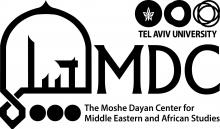One of the many, albeit less noticed, features of the uprisings which have cascaded back and forth across the Middle East and North Africa this past year has been the increasing salience of the Amazigh (Berber) factor. In Libya, the small and generally forgotten Amazigh community played an important role in the fighting against Muammar al-Qaddafi's forces. In Morocco, the consti- tutional reform undertaken by King Mohammed VI included the recognition of Tamazight, the Berber language spoken by an estimated 40-45 percent of Morocco's 31 million people, as an official language of the state, alongside Ara- bic. Post-Ben Ali Tunisia, where only a small number of Berber villages remain, hosted a meeting of the World Amazigh Congress. Touareg Berbers are now in open revolt against the authorities in Mali. No matter what happens in Algeria, the Berber factor will surely play a role. An integral part of the Amazigh awakening has involved the renewed cultivation of links between the past and present. In Morocco, these efforts have been especially directed toward Mohammed bin Abdelkrim al-Khattabi, the leader of a five-year resistance to Spanish and French colonialism in northern Morocco between 1921 and 1926. The larger context for these efforts has been the gradual opening of civic and political space during the reign of King Mohammed VI, which began in 1999. The state actively participates in the competition over Abdelkrim's memory as it seeks to control the pace of change
Abdelkrim: Whose Hero is He? The Politics of Contested Memory in Today's Morocco (BJWA)
MDC Principal Research Fellow Dr. Bruce Maddy-Weitzman analyzes how the memory of Mohammed bin Abdelkrim al-Khattabi, the leader of a five-year resistance to Spanish and French colonialism in northern Morocco between 1921 and 1926, is utilized in the modern era.
External reference








